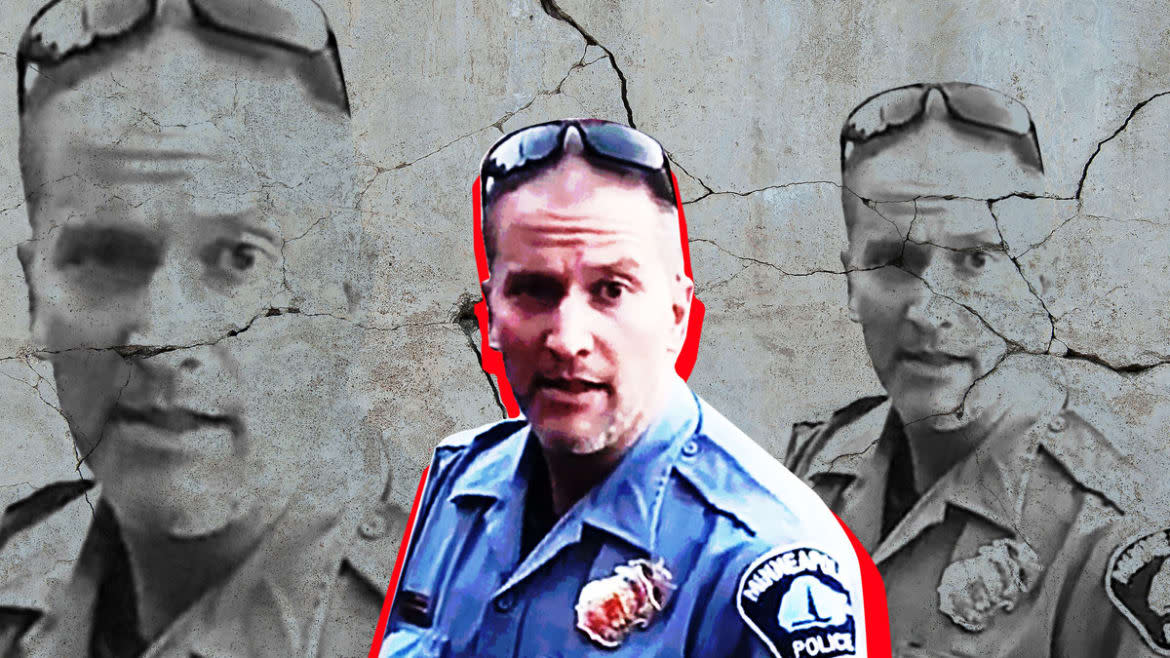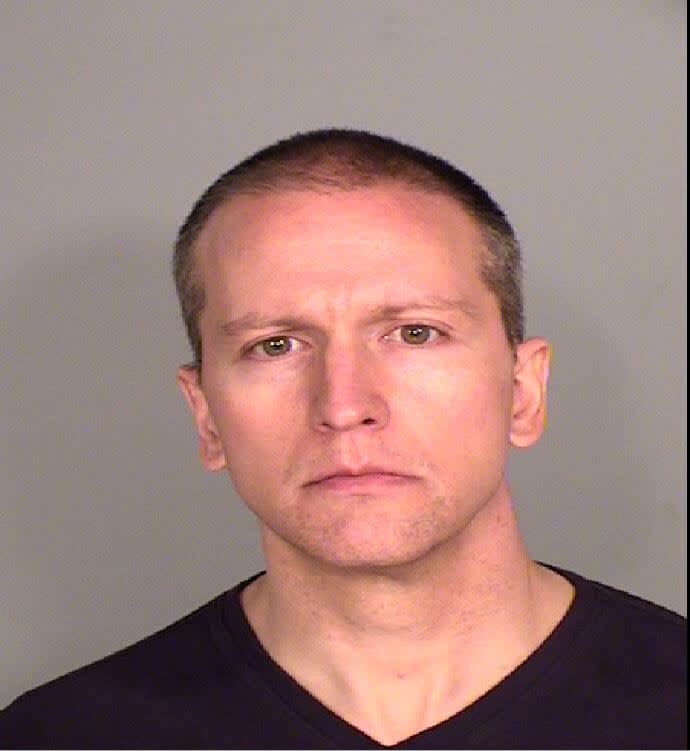This Is Why It’s So Tough to Charge, Let Alone Convict, a Killer Cop

Four days and three nights of unrest after Derek Chauvin’s knee was on the neck of George Floyd, the now former Minnesota police officer was charged with third-degree murder and manslaughter.
Hennepin County Attorney Mike Freeman said the state investigation moved with “extraordinary speed,” noting that his office has never charged a police officer in “that kind of timeframe.” And yet, after viewing the video of Floyd’s death, most wonder why Chauvin wasn’t charged sooner.
The answer is that the law deliberately stacks the deck in favor of police officers. All criminal defendants have a right to a unanimous finding by a jury of guilt beyond a reasonable doubt. But because we entrust officers to use force, even deadly force, to protect the public, we make them guilty of a crime only when they clearly exceed their public authority. How much legal protection is too much?
Floyd Unresponsive for 3 Minutes as Cop Used ‘Dangerous’ Restraint: Prosecutors
To convict Chauvin of third-degree murder, the prosecution will have to prove that he acted with a depraved mind, without regard for human life. For second-degree manslaughter, the prosecutor will have to prove that Chauvin acted with gross negligence. These are the same standards that apply in every case of third-degree murder or manslaughter under Minnesota law.
What’s different when the defendant is a police officer is that he may use a public authority defense. That means the state has the burden of proving that the force used was not justified. A jury would be instructed that to conclude that the force was not justified, it must find that Chauvin created an unreasonable risk of death or great bodily harm.
Under Supreme Court case law of Graham v. Connor, the jury would further be told that reasonableness must be judged from the perspective of an officer on the scene, rather than with the 20/20 vision of hindsight. Further, the jury would be told that their reasonableness inquiry extends only to those facts known to the officer at the precise moment that the officer acted with force. The jury would be reminded that to determine reasonableness, it must consider that police officers are often forced to make split-second judgments about the amount of force that is necessary under circumstances that are tense, uncertain, and rapidly evolving. This standard can be very difficult to meet.
U.S. Attorney General William Barr has said that the Department of Justice will review the case for potential violations of federal civil rights laws, but in federal court even more proof is required. The applicable federal statute is deprivation of constitutional rights under color of law, 18 U.S.C. § 242.
The Disturbing History of Minneapolis Cops Before George Floyd
In addition to the reasonableness requirement, the federal offense also requires a showing of willfulness. To prove willfulness, the prosecutor must show the officer had a specific intent to do precisely what the law forbids, not just a bad purpose. A jury would be instructed that it is not enough that an officer’s force was excessive and unjustified, or that he intended to harm or to frighten the suspect. It is not enough to show that death was accidental, negligent or reckless. It is not enough to show that death was caused by a mistake, panic or bad judgment. Instead, prosecutors must prove that the officer knew what he was doing was illegal and chose to do it anyway. This element can be even more difficult to prove. As a result, this legal standard is often an obstacle to even filing charges because DOJ policy forbids a prosecutor to file charges unless he believes that the “admissible evidence will probably be sufficient to obtain and sustain a conviction.”
In addition to the high standards of proof at trial, another roadblock for charging police officers comes at the investigative stage. Police officers and other public employees are entitled to what are referred to as “Garrity rights,” based on a 1967 Supreme Court case called Garrity v. New Jersey. Garrity rights are part of an officer’s Fifth Amendment right against compelled self-incrimination. If a police officer is required to write a report or give a statement to internal investigators as a condition of his continued employment, that statement is considered compelled by the government, and may not be used at trial. An outside agency can still question officers, but only if the officer is willing to talk voluntarily.
Speedy trial considerations can also delay the filing of charges in state or federal court. While prosecutors can file lower charges like manslaughter as a placeholder and continue to investigate and file additional charges, once a defendant is charged with a crime, the speedy trial clock starts ticking. In Minnesota, that clock expires in 60 days; in federal court it’s 70 days. Before trial, investigators and prosecutors need to interview witnesses, collect and review all video, study medical examiner reports, and consult with experts about the cause of death. Ideally, witnesses would be put before the grand jury to lock in their testimony before trial, which will likely not occur until many months later. During COVID-19, most grand juries are suspended. Once charges are filed, prosecutors are not legally permitted to use the grand jury unless they are pursuing additional charges.

Derek Chauvin’s booking photo.
Prosecutors will also want to review Chauvin’s disciplinary records and training history and department policy about use of force. Reports indicate that Chauvin has had 20 complaints filed against him during his 19-year career. While prior bad acts are not admissible to show a propensity for misconduct, they may be used for other specific purposes, such as intent, common scheme or plan or identity. Evidence of those acts must be compiled and reviewed.
Prosecutors also must use those 60 days to prepare for trial. For that reason, prosecutors prefer to build a case before filing charges. When the legal standard for conviction is as high as it is for police officers, this need becomes even more acute.
Here, swift charges against Chauvin are supported by the strong video evidence of his use of a tactic that is known to create a risk. According to law enforcement training guidance written by Dr. Lawrence Heiskell, an emergency physician and a reserve police officer, forcing a suspect on his stomach can lead to death by a phenomenon known as positional asphyxia. “Placing a knee or weight on the subject and particularly any type of restraint hold around the subject’s neck can be problematic,” Dr. Heiskell warns, interfering with the subject’s ability to breathe.
According to the Minneapolis Police Manual, the reasonableness of force officers may use must take into account the severity of the crime, whether the suspect poses an immediate threat to the safety of the officers or others and whether he is actively resisting arrest or attempting to flee. Floyd’s alleged offense was passing a counterfeit $20 bill.
Freeman has promised to continue to investigate additional crimes and defendants relating to the incident, but his investigation will face all of these obstacles.
While it is important to protect police officers from facing criminal liability for every mistake they make in the stress of a rapidly evolving situation, does our law go too far to protect those who abuse the power of their uniform? Every case of police misconduct tarnishes the badge of all officers, who find their own trustworthiness under attack. When society does not trust the police, officers lose legitimacy, and respect for the rule of law erodes. The unrest we have seen in Minneapolis and throughout the country reflects this phenomenon.
One potential reform would be to amend the federal civil rights statute to require a lower standard of intent. Instead of requiring that the violation occur willfully, for example, Congress could change the standard to knowingly or recklessly. With a lower standard of proof, prosecutors would be able to complete their investigations and charge officers more quickly and with more success.
Of course, even better than prosecuting officers for misconduct would be to prevent it from occurring in the first place. Creating a culture in police departments to bring calm to chaos, training officers to recognize implicit bias that may cause them to inaccurately perceive people of color to pose a threat, teaching officers to de-escalate tense situations, collecting data about the race of victims of excessive force, and removing officers who have engaged in misconduct would all contribute to reducing use of excessive force.
It would be beneficial to society if prosecutors could bring charges for unlawful force against police officers more quickly, but even better if such charges were not necessary at all.
Get our top stories in your inbox every day. Sign up now!
Daily Beast Membership: Beast Inside goes deeper on the stories that matter to you. Learn more.

 Yahoo News
Yahoo News 
